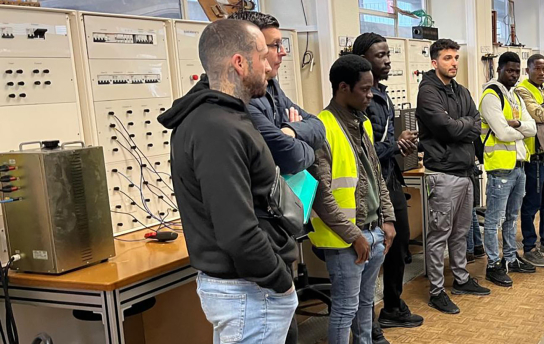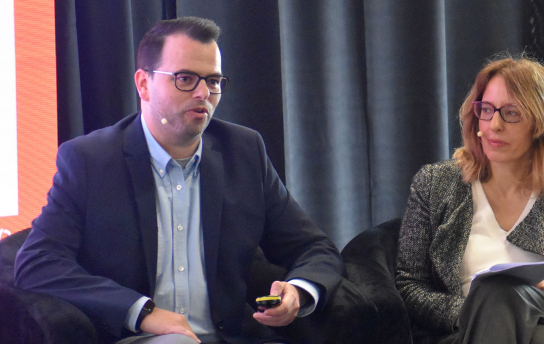On March 26, the Electrical Machines Laboratory of the Department of Electrical, Energy and Automation Engineering (DEEEA/ISEL) received a visit from students from CENFIC in Prior Velho, in order to give a practical class on the diversity of electric motor solutions and their applications.This visit, promoted by ISEL alumnus and professor of the subject of Rotating Electrical Machines at CENFIC, Marco Santos, was supported by professor Armando Cordeiro (President of DEEEA/ISEL), and was led by professor Pedro Fonte (DEEEA/ISEL) and professor Ricardo Luís (DEEEA/ISEL).The class was demonstrative in nature and focused on AC and DC electrical machines and their relevance in electrical power systems and industrial applications.The entire visit to the laboratory was a success and sparked great interest among the students.
On April 3, Professor José Simão (DEETC/ISEL) represented ISEL at the workshop "Success factors of the mobility ecosystem in a new dynamic of the cities of the future – people, organizations, resources" integrated in the Alenquer 2025 Business Forum, at the invitation of the President of the IDESCOM Association, Dr. Isabel Soares Carneiro.During the session, Professor José Simão presented the ongoing project "Platform for the Management and Operation of Multimodal Transport Networks", developed within the scope of the consortium Alliance for Energy Transition (ATE). This innovative platform aims to optimize urban mobility through the integrated management of multimodal transport, currently covering buses and trains, with a focus on improving operational efficiency and the passenger experience.ISEL participates in this project by contributing to the definition of the architecture of the system for collecting passenger counting data in different vehicles and multimodal stations, as well as for the processing and real-time provision of this data on a central platform.ATE project grantee and MEIC student João Cravo is currently integrating new contextual data, such as weather and traffic conditions, with a view to using vehicle occupancy prediction models to improve the operation of the transport network. This work by student João Cravo is also one of the contributions of his ongoing dissertation, co-supervised by Professor Matilde Pato (DEETC/ISEL). Participation in this workshop reinforced the importance of technological innovation and collaboration between academic entities, municipalities and companies for a more sustainable future in urban mobility.More information


